- Home
- Scott Turow
Presumed innocent kc-1 Page 29
Presumed innocent kc-1 Read online
Page 29
That of course is one reason why Stern may have gone down the road now, to get normally inadmissible proof before the jury.
"I must say," the judge says, "Mr. Stern, that you are playing with fire. I don't know where this is gonna lead us. But I tell you two things. You had better be prepared for the prosecution's response. Because the prosecutor will be entitled to quite a bit of latitude in answering. And secondly, proof of this charge better be forthcoming or I'll strike all the cross-examination on this theme and I'll do that in the jury's presence."
Larren from his considerable height looks down at Stern directly. At this juncture, most defense lawyers, caught running out of bounds, back off and withdraw the question.
Stern says simply, "I understand. Your Honor, I think, will see exactly how this will develop. We will offer evidence addressed to the issue."
"Very well."
We return to the courtroom.
"What the hell is he doing?" I ask Kemp as we sit down again at the defense table. Jamie shakes his head. Sandy has not conferred with him either about this.
Stern quickly leaves the subject of Nico's firing and moves on to smaller matters. He makes a few more minor points at random and then comes back to the counsel table to confer.
"Almost done," he whispers to Kemp and me. "I have one further area. Anything more?"
I ask what he was doing out in the hallway and he places his hand on my shoulder. He says he will discuss it later. Kemp tells Sandy he has nothing else and Stern once more addresses the witness.
"Just a few more questions, Mr. Horgan. You have been most patient. We spoke earlier about a file you assigned Ms. Polhemus, a very sensitive case. Do you recall that part of the examination?"
"I believe I'll remember it for quite some time," says Raymond. He smiles, though.
"Did you know, Mr. Horgan, that Mr. Molto was involved in the case described there?"
Nico is on his feet first, bellowing in outrage. Larren for the first time before the jury shows anger with Stern.
"Sir, I have warned you about this area of inquiry."
"Your Honor, it is relevant to the defense position I set forth earlier at sidebar." He means the frame-up theory. Stern is being elliptical in order to keep the content of the hallway conference from the jury, who were not supposed to hear that conversation. "I must tell the court that we have every intention of continuing to investigate this file with the jury, and to offer evidence about it when it is our turn. Indeed, this is the proof I alluded to. Stern is saying that we are going to put in proof about the B file to support the charge that the case is manufactured. Again, I am astounded by his position. The judge sits back; he rests his hands atop his head and puffs out his cheeks to blow off steam.
"For the time being, we have heard enough," he says.
"Two questions more," says Sandy with magisterial authority, and turns back to Horgan without waiting for the judge to tell him he may not.
"Did Mr. Molto ever ask you about that file?"
"As I recall, yes. After I resigned as P.A. he went over everything Rusty-Mr. Sabich-had done on the Polhemus case."
"And Mr. Molto had that file then?"
"He did."
"And do you know what investigation, if any, he conducted of the allegations contained there?"
"I do not."
"I'll answer that," says Nico suddenly. He is standing. He has quite clearly lost his temper. His color is up and his eyes are wide. "He took no action. He wasn't going to chase Rusty Sabich's red herrings." This speech before the jury would ordinarily be grossly improper. But it is precisely the kind of riposte that Larren's warning in the hallway seemed to invite, and Della Guardia has taken full advantage of the opportunity. No doubt he and Tommy discussed this on the way back in from the corridor and decided that Nico would attempt to make a spirited defense of Molto in the jury's presence. Stern ventures no objection. Instead, he slowly turns to face Molto.
"Mr. Della Guardia," he says, "perhaps we will a learn something about red herrings." He pauses. "And scapegoats."
Those are the last words from Stern on Raymond's cross.
Larren recesses for the week. On Fridays he hears motions in other cases.
I wait for some explanation from Stern of his new tactics, but he goes on picking tip papers from the defense table. Raymond stops by to shake Sandy's hand on his way from the courtroom. He wanders wide of me. Finally Stern comes to see me. He wipes his face with his handkerchief. He appears relaxed. Leaving aside the last bit, the cross-examination of Horgan went exceptionally well.
I am too concerned, however, to congratulate him.
"What is this?" I ask. "I thought you told me we weren't going down the road to accusation."
"Clearly, Rusty, I changed my mind."
"Why?"
Stern gives me his Latin smile: the world is full of mystery.
"Instinct," he replies.
"And what evidence are we going to offer?"
"Now you remind me," he says. He is quite a bit shorter than I am and he cannot comfortably swing his arm around my shoulder. Instead, he uses another confidential gesture and touches my lapel. "For the time being, I will have to leave that concern to you, he says, and turns away.
Chapter 30
Tonight I say that I am bushed and leave Stern and Kemp early, but there is an appointment that I want to keep. I called after court, and good to his word, Lionel Kenneally is here, in a neighborhood tavern called Six Brothers. The cabbie gives me a peculiar look when he drops me. It is not that there are no white people around here. There are a few stoical families holding on against the Ricans and the blacks, but they do not wear chalkstriped suits and carry briefcases. Instead, their shinglesided bungalows are tucked in among the warehouses and factories which cover most of every block. There is a sausage plant across the street, and the air is heavy with the scent of spices and garlic. The tavern is like so many others out this way: just a joint with Formica tables, a vinyl floor, lights over the mirrors. Above the bar, there is a neon Hamm's sign which casts weird shadows from the reflective spangles of the continuous waterfall.
Kenneally does not even wait for me. Instead, he starts to move when I enter and I follow him back to a smaller room with four tables where he says we won't be bothered.
"So what the fuck is this about?" He is smiling but his tone is not altogether friendly. I've got the frigging watch commander out with an indictee, an enemy of the state, an accused homicidal felon. It is not place for a ranking police officer to be seen.
"I appreciate your coming, Lionel."
He waves that off. He wants me to get down to business. A woman pokes her head in. I decline to drink at first, then think better of it and order a Scotch-rocks. Lionel already has a whiskey in his hand.
"I need to ask you some questions I should have asked when I came out to see you in the district in April."
"About?"
"About what the hell was going on out in the North Branch eight or nine years ago."
"Meaning?" His look is close: he does not want to get led astray.
"Meaning, was somebody taking money?"
Kenneally bolts his drink. He's thinking.
"You know you're hot fucking stuff, don't you?" he asks.
"I see the papers."
He looks at me. "You going down on this thing?"
I tell him the truth.
"I don't think so. Stern is a magician. He's got three of the jurors thinking about inviting him for dinner, you can tell from the looks on their faces. He cut a good piece out of Horgan today."
"They say downtown that Nico doesn't have the horses. They say he went too soon, Molto forced his hand. They say if he had any brains he would've got you in a room with a tape recorder and somebody you trust instead of lettin Mac make him tell you what he had." I recognize now that what I thought might be a glaze of alcohol is anger. Lionel Kenneally is pissed. He's heard enough about this case to figure that he did something he doesn't do frequen
tly: made an error in judgment. "Myself, I figure you might be goin down anyway. Sure as fuck, you didn't tell me you were in there handlin her glassware when you was out here before."
"You want me to tell you I didn't kill her?"
"Fuckin-A right I do."
"I didn't kill her."
Kenneally stares, a fierce, immobile look. I know my delivery was too measured to provide him with any assurance.
"You are one fuckin strange son of a bitch," he says.
The barmaid, wearing one of those old ruffled tops to show the beginning of her cleavage, comes in with my drink. She also puts another tumbler of whiskey in front of Lionel.
"You know," I tell Kenneally as I sip, "that is something I never understood about myself. I mean, my old lady was as weird as those women downtown carrying around shopping bags, and my old man had spent most of World War 11 eating dead horses and stuff such as that, which does some work on your cerebrum, believe me. Everything in my whole life was weird. And until this happened, I really thought I was Joe College. That's who I wanted to be and that's what I thought I was. Really, I thought I was fucking Beaver Cleaver, or whoever the boy next door is these days. I really did. And about the only thing I've gotten out of this experience to date is hearing you tell me I am one strange son of a bitch and listening to that little harp string that sounds in my chest when somebody, even if he's half-crocked, has said something that is really right. So I thank you." I tap his glass with mine. I am not sure that Lionel particularly enjoyed this routine. He watches me for a minute.
"What'd you come here for, Rusty?"
"I already told you. Just answer that one question."
Kenneally sighs. "Ain't you a fuckin pip. One question, all right? And what's said here stays here. It's me and you. I ain't listenin to any fuckin sob stories about your constitutional rights or that shit. Nobody's fuckin callin me to testify against the P.A. That happens, world's gonna think you confessed right here tonight."
"I have the ground rules."
"Your short answer is, I don't exactly know. Maybe I heard some things, all right? But that wasn't my show. Things out this way were a little loose. You know what I'm sayin? Remember, we're talkin before Felske stepped in shit." Felske was a bail bondsman who used to take care of certain cops for referring him business. When the bail law was reformed, permitting personal-recognizance bonds and obviating the need for outside sureties, Felske and his coppers maintained their income by selling the coppers' assistance on occasion. Sometimes the cops would talk a witness into not showing up. Sometimes the cops would forget things when they testified. Felske, however, made such a proposition one day to a man with an electronic lapel pin. The copper involved, named Grubb, flipped for the FBI and took down Felske and three other officers. That was five years ago. "Back then, this was a wide-open place."
"Was Tommy Molto one of the people you heard things about?"
"I thought you said one question."
"It had subparts."
Kenneally doesn't smile. He looks down in his drink.
"In this job, you learn you better not say never." Kenneally laughs.
"Lookit you. Right?" He laughs again.
He is still angry with himself All of this is against his better judgment.
"But Molto," he says. "Never. He's from the fuckin seminary. He'd bring his rosary to court. No chance this guy would take."
"Was Carolyn involved with whatever was going on?"
He shakes his head. He is not saying no. He is refusing to answer.
"Look. I don't owe you, Rusty. Okay? I thought you done your job like a professional guy. You came out here before people in the suburbs even knew from gangs, and you worked hard. I give you credit. What else you done, you done. But you come into the projects with me in the middle of the night. You got your fuckin hands dirty. But don't push, all right. These guys I owe. You ain't one."
Cop loyalty. He won't even drop a dime on a dead lady. Kenneally drinks his drink and looks out the door.
"Did Carolyn have anything going with Molto? You know, a personal thing?"
"Jesus. What's your hang-up with Molto? Guy's strange like everybody else."
"Let's just say he's my best alternative."
"What the fuck does that mean?"
I wave the question off.
"Well, I don't see that guy even catchin a whiff of Polhemus. You seen him, Buddy Hackett, right? They were friends, that's all. Buddies. Sometimes she'd smooth shit out for him." Kenneally takes another drink. "It wasn't him she was bangin."
"Who?"
"No chance," he said. "You got enough."
"Lionel." I really don't want to beg. He will not look at me. "This isn't gossip, for Chrissake. This is my goddamned life."
"The nigger."
"What?"
"She was sleepin with the nigger."
I don't get it at first. Then I do.
"Larren?"
"You been out at the North Branch. You remember how it was. It was like everybody used to work in one room.
Three doors, and all of em let you into one office. P.O. P.A. Nick Costello was signin in the coppers who come out to testify. He had a desk there. Judge's chambers used to open up there, too. He'd get off the bench noontime, she'd go sashaying in. They weren't makin no secret of it.
"Fuck," says Kenneally, "I halfway told you last time you was out here. Don't you remember? I told you how she fucked her way to the top, I couldn't figure Horgan hiring her. That's who got her in. Your old buddy there, Judge Motherfucker. He and Horgan got some kinda tie-in."
"They were law partners," I say. "Years ago."
"Figures," said Lionel. He shakes his head in disgust.
"And you won't tell me whether Carolyn was dirty?"
He raises a finger. "I'm gonna leave," he says. He's quiet for a while. "Sometimes she'd smooth things out, like I say. Molto and the judge, they didn't get along so well. Maybe you heard them stories."
"A number."
"You know, she was everybody's pal back then. The P.O. Sometimes she'd get the judge to lay off. Sometimes she'd get Molto to take two steps back. She was kinda the referee. Maybe you're right. Maybe Molto was really carryin a big fuckin torch for her. Maybe that's why he had sand in his ointment whenever he had to go before the judge. Who knows? Go figure people," he says.
I can tell that I've had everything now that I'm going to get. This last little bit was strictly for charity.
I pick up my briefcase and leave money for the drinks.
"You're a good sod, Kenneally."
"I'm a fuckin fool, is what I am. Halfa downtown's gonna be talkin about this tomorrow. Whatta I tell em we said?"
"I don't give a shit. Say what you want. Tell them the truth. Molto knows what I'm looking for by now. Maybe that's why I'm in this soup to begin with."
"You don't believe that."
"I don't know," I tell him. "Something's not right."
Chapter 31
We spend the weekend at work, both days. My assignment is to prepare for the end of the state's case, when the defense, as a matter of routine, makes a motion for a directed verdict of acquittal-a request that the judge terminate the trial, declaring that there is not enough evidence for a reasonable jury to convict. This is usually futile. In ruling on the motion, the judge is required to evaluate the evidence in the light most favorable to the state, meaning, for example, that for the purposes of this decision Judge Lyttle will have to accept Eugenia's testimony, right down to her angels. However, a directed verdict ruling is unreviewable; the state may not appeal. As a result some judges-Larren quite notoriously-use this as a device for imposing the result they favor. Thus, while our prospects are dim, Stern wants to make as strong a presentation as possible. My assignment is to find cases which in some fashion condemn the absence of proof of motive in a circumstantial case. I pass hours in the library. Sunday morning we meet to talk strategy. Sandy still does not want to speak in detail about the defense case. He makes no mention
of my testimony or that of other witnesses. Instead, we analyze the remainder of the state's proof. Lipranzer is supposed to testify Monday. The state's case will now begin to gather speed. Their physical evidence will be coming in: the fibers, the phone records, the fingerprints (assuming they can find the glass); the maid who thinks she saw me on the bus; and Kumagai. Stern again emphasizes the point he made to me the other day at lunch: our need to raise doubt in some way about Kumagai. If we cannot, the prosecutors will reach the end of their case having built up tremendous momentum; that in turn, may force Sandy to change his strategy for our presentation. This is one reason Stern is unwilling to arrive at any final opinions about what we should do. Together Kemp and Stern and I puzzle out ways to attack Kumagai. Stern has examined Painless a number of times and he shares the common opinion that Kumagai is an unpleasant hack. The jury will not be eager to believe him. There are old stories about Painless which I share; finally, I mention that his police department personnel file, where complaints about Kumagai's past performance might be jacketed, would be a good source for us to examine.
"Excellent," says Stern. "How wonderful to have a prosecutor on our side." He directs Jamie to draft at once a trial subpoena for the file, and another for records of the Pathology Lab, so we can see what else Painless was up to in April. We have not issued most of our subpoenas, inasmuch as many of the deputy sheriffs who serve them tend to alert the prosecutors, giving the P.A.'s an opportunity to combat the evidence gathered or, even worse, to utilize it themselves if it is helpful to the state. But now that the prosecution case is almost complete, we should proceed. Jamie forages through his old notes to be sure we do not miss any of the items we have said we wanted to acquire. He drafts subpoenas for each of Carolyn's doctors, identified from her little phone book, which I found in her apartment.
"And you wanted to subpoena the phone company," Kemp says to me, "so we can look at their backup data on the MUDs from your house."
"Don't bother with that," I say quickly. I do not look up, but I can feel the weight of Kemp's startled glance upon me Stern, however, goes on, without dropping a beat.

 Testimony
Testimony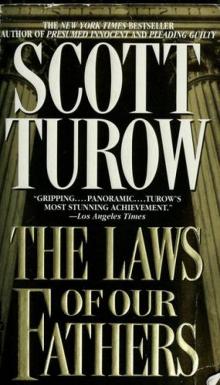 The Laws of Our Fathers
The Laws of Our Fathers Ordinary Heroes
Ordinary Heroes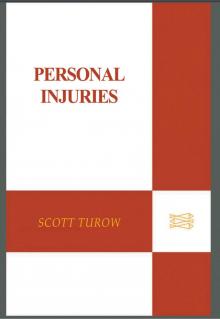 Personal Injuries
Personal Injuries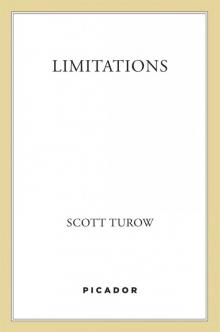 Limitations
Limitations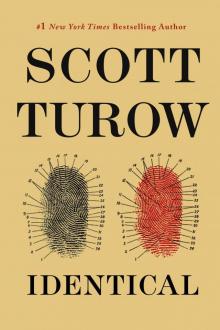 Identical
Identical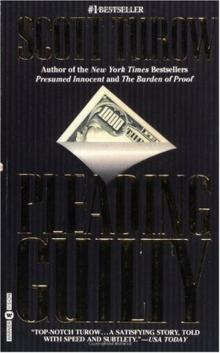 Pleading Guilty
Pleading Guilty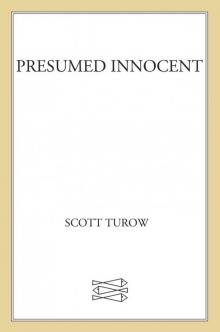 Presumed Innocent
Presumed Innocent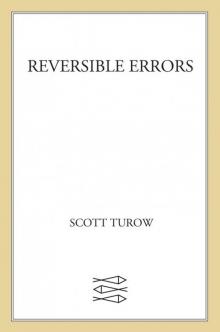 Reversible Errors
Reversible Errors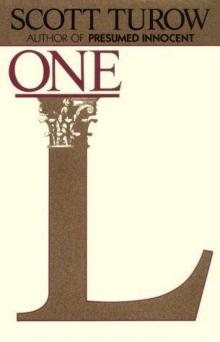 One L: The Turbulent True Story of a First Year at Harvard Law School
One L: The Turbulent True Story of a First Year at Harvard Law School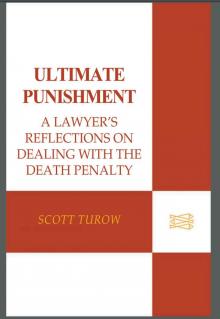 Ultimate Punishment
Ultimate Punishment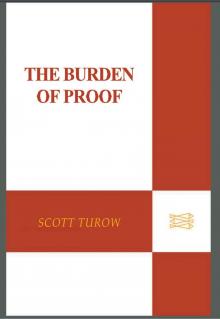 The Burden of Proof
The Burden of Proof Ordinary Heroes (2005)
Ordinary Heroes (2005)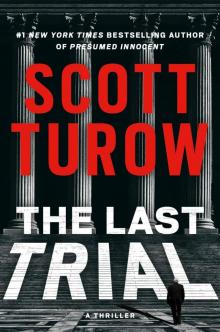 The Last Trial
The Last Trial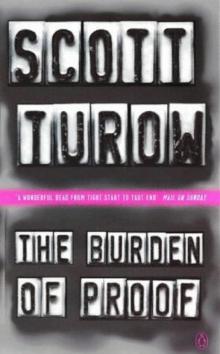 The Burden of Proof kc-2
The Burden of Proof kc-2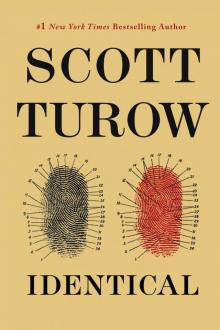 KC09 - Identical
KC09 - Identical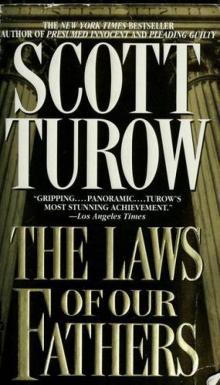 The Laws of our Fathers kc-4
The Laws of our Fathers kc-4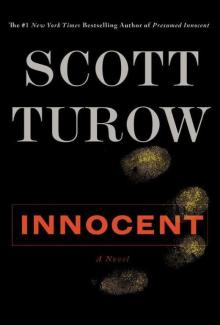 Innocent kc-8
Innocent kc-8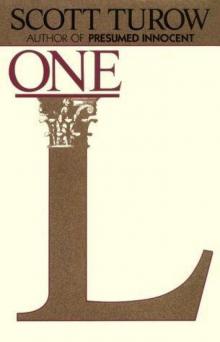 One L
One L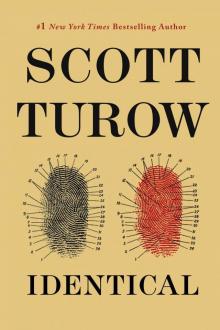 Identical kc-9
Identical kc-9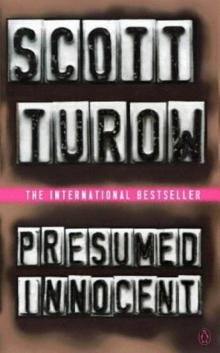 Presumed innocent kc-1
Presumed innocent kc-1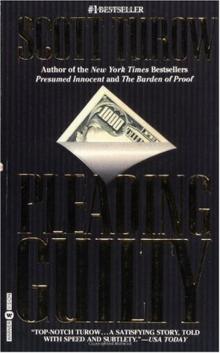 Pleading Guilty kc-3
Pleading Guilty kc-3 One L (1977)
One L (1977)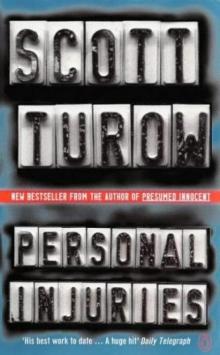 Personal injuries kc-5
Personal injuries kc-5